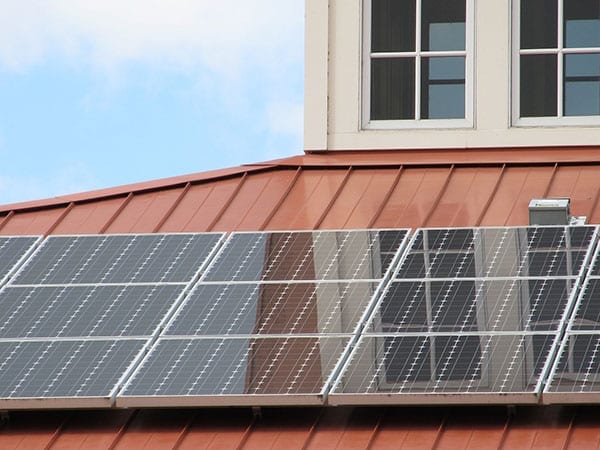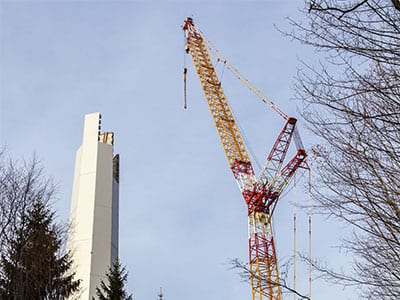Where Does the US Stand on Green Rooftop Laws?
Ask anyone in the construction industry and they will tell you that there is a building requirement for just about anything. In the United States, we have energy compliance laws, renovation and demolition requirements, and even standards for building maintenance. There are height limits, zoning restrictions and exhaustively thorough building codes. Many of these are about safety, and some are even about aesthetics. But between building safety and community aesthetics is yet another topic that is neither essential nor pointless. This topic concerns environmental requirements, and how green rooftop laws could provide a long term solution.
U.S. History of Green Roofs
In the United States, most communities have long pushed for greener and cleaner construction. Still, these were not always a requirement. Back in 1993, the US Green Building Council designed and released the Leadership in Energy and Environmental Design (LEED) rating system. Their hope was that corporations would voluntarily work towards a higher rating. Since then, several states have mandated particular rating requirements.
The first state to require new buildings to meet LEED standards was Washington in 2005. In 2010, California enacted its own statewide green building code. Some towns, including Charlottesville, VA, also hold new construction to green standards. None of these standards are overly specific. For simplicity, LEED is based on a point system that allows buildings to earn or lose points for various elements related to their design, construction and operations.

Though the heavy-handed idea of mandating green roofs does not sit well with the general American public, creating incentives for companies to invest in greener rooftops could be a win-win.
France Considers Mandate for Green Roofs
In France, specificity is the name of the game. Recently, the twittersphere had a field day with a new law that would have required commercial buildings to have their rooftops at least partially covered in either solar panels or plants. The law would have landed a step below what environmentalists had called for – they wanted both commercial and residential buildings to be completely covered in either plants or solar panels by mandate.
Though the French Senate eventually stripped down this particular green rooftop law in a push for biodiversity requirements, it remains a compelling idea. Why not keep gardens or solar panels on the roofs of our buildings? Roofs, after all, are an otherwise unused space. Though the heavy-handed idea of mandating green roofs does not sit well with the general American public, creating incentives for companies to invest in greener rooftops could be a win-win.
Independent of green rooftop laws, a number of companies have popped up to help design the perfect rooftop for any environmentally-conscious building. From natural-sounding names like roofmeadow to more traditional tech company names like ZinCo, these companies are making quite a splash. One key similarity between these companies is that they don’t only promise aesthetic and ecological benefits, but also highlight economic benefits.
Market Growth in the United States
According to ZinCo, investing in a green roof will keep your roof healthy longer, decrease your heating and cooling bills and even protect your pipes from excessive storm water runoff. The folks at greenroofs.com even say that utilizing these technologies can increase brand value and, in turn, profits. It is no wonder that these companies are growing in popularity.
On the flip side, the French Senate decided to strip down the green roofs law due to business outrage at the additional costs of constructing these rooftop gardens or solar panels. Businesses threatened to pass any additional costs down to their consumers, leaving the Senate with few options. Though France would have been the first country to do so, green roof mandates have been successfully implemented in several cities. Toronto, Tokyo and Copenhagen all mandate green roofs in certain circumstances.
In North America, the green rooftop industry seems to be booming, even without wide-spread government mandates. A portion of the growth is due in part to direct government support. For example, incentive programs for green roofs exist in Washington, DC, New York City, Chicago and Baltimore.
Expect to See More Green
The 2013 Annual Green Roof Industry Survey, conducted by Green Roofs for Healthy Cities, found a 10 percent growth in green roofs across North America. Washington, DC led the procession with over 2,000,000 square feet of green roof installed over the course of the year. According to the report, of the top ten cities with green roof adoption, seven had government programs that directly support green roof projects. Green Roofs for Healthy Cities has been administering this survey since 2003 and reports double-digit growth rates in the industry for the last ten years.
Perhaps more interesting than whether green roofs are a good idea is how best to build one. Several companies and ideas are still competing in this arena as the market grows. Some prefer rooftop gardens, others swear by solar panels and still others have designed interesting ways of intertwining the two. The most promising design of any green roof is likely to depend on a number of factors and the considerations made for that specif design. One thing is for sure: green roofs are a trend that will not be disappearing any time soon.
About Scale Funding
Scale Funding is an invoice factoring company serving businesses across the United States. For more information on factoring, call (800) 707-4845 for a free, no-obligation consultation and quote.
RESOURCE CENTER
Learn More About Renewable Energy
Cash for Expansion and Growth
Factoring with Scale Funding Delivers the Cash Your Business Needs
Renewable Energy Contractors
Factoring Provides the Cash You Need Today. Factoring for Renewable Energy Contractors Cash for Payroll, Purchasing Equipment, Paying Bills, and…
Invoice Factoring for Renewable Energy Contractors
No matter the industry, businesses need cash on hand to operate. Cash is the fuel that powers business operations. Invoice…


